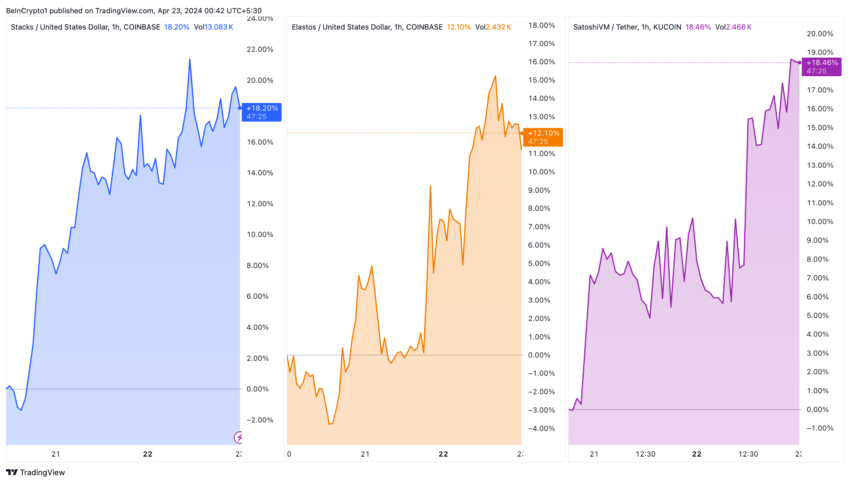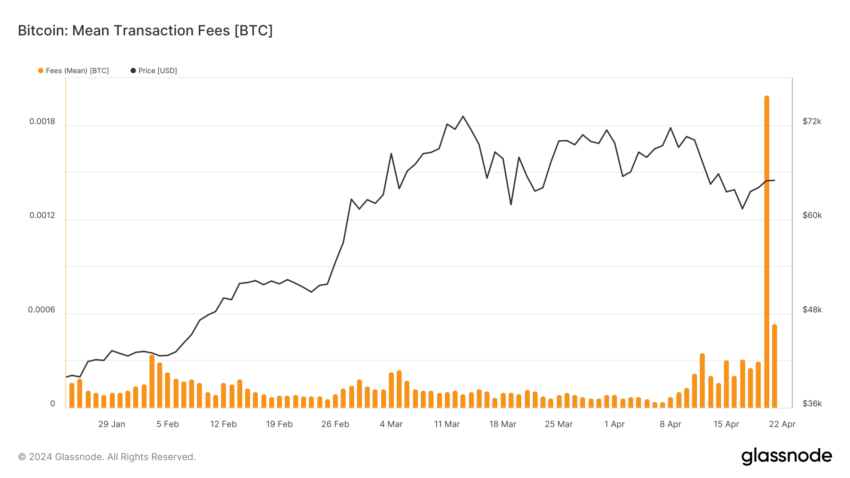Following the latest halving on April 20, Layer-2 solutions like Stacks (STX), Elastos (ELA), and SatoshiVM (SAVM) are outperforming Bitcoin itself.
This surge reflects the increasing relevance and potential impact of Layer-2 solutions on the broader cryptocurrency market.
Stacks, Elastos, SatoshiVM Thrive After Bitcoin Halving
Stacks, a prominent Layer-2 network, saw its token STX climb over 21.36% to a price of $2.95. This remarkable increase occurred right after the halving, which slashed Bitcoin’s per-block coin emission from 6.25 to 3.125 BTC. In contrast, Bitcoin posted a modest 4.75% rise, reaching $66,820.
While STX leads as one of the top-performing cryptocurrencies within the top 25, other Layer-2 tokens like Elastos’ ELA and SatoshiVM’s SAVM also enjoyed upticks of 16.14% and 18.64%, respectively.

Bitcoin Layer-2 projects are essential for enhancing scalability and transaction speed on the blockchain. Unlike their Ethereum counterparts, which focus on smart contract scalability, Bitcoin’s Layer-2 solutions aim to add programmability and efficiency to the network, which lacks a native virtual machine akin to Ethereum’s.
The surge in these tokens coincided with a spike in Bitcoin transaction fees, which soared to nearly 0.0020 BTC post-halving, marking a new high since early 2018. This increase is linked to the launch of Runes, a protocol that allows for the creation and trading of tokens directly on the Bitcoin blockchain.
“The fourth halving of Bitcoin, coinciding with the launch of the Runes token standard, resulted in an unprecedented spike in Bitcoin’s total transaction fees, which reached $80.77 million on April 20,” analyst at The TIE said.
Indeed, the introduction of Runes led to a frenzy of minting and trading activity, pushing transaction costs higher as the number of Runes inscriptions hit 3,700.
Read more: 7 Hot Meme Coins and Altcoins that are Trending in 2024

Investors are now closely monitoring these Layer-2 networks, recognizing their potential to significantly alter the landscape of Bitcoin transactions and scalability.








